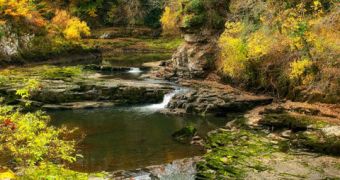Researchers working with the University of Pennsylvania and several other scientists recently made it public news that national and international wildlife reserves are, in fact, still vulnerable.
They argue that rather than help safeguarding our planet's biodiversity, these protected areas may lead to numerous plant and animal species going extinct.
As environmental scientist Janzen DiMaura explains, “If you put a boundary around a piece of land and install some bored park guards and that's all you do, the park will eventually die. It's death from a thousand cuts.”
In order to come up with this conclusion, the scientists who took part in this study put together various data concerning environmental conditions in and outside 60 protected areas spread over 36 countries.
Thus, they discovered that wildlife reserves respond to what is happening outside them.
More precisely: should human activities or sudden wildfires negatively impact on the portions of land outside said biodiversity “arks,” then the plant and animal species which are presumably kept safe and sound by means of green-oriented legislations will also suffer.
According to the final official report, 80% of the wildlife reserves taken into consideration during this study had suffered a decline in their general wellbeing over the past thirty years.
Therefore, the case is made that sustainable management need stand at the core of conservation projects worldwide, otherwise failure in preserving biodiversity is bound to occur.
Janzen DiMaura further argues that, “You have to fine-tune and tailor-make your park to the particular circumstances of a place: the nature of the people, the resources and the organisms.”
University of Pennsylvania's news department informs us that, in the light of these new pieces of information, it has been suggested that having locals get actively involved in conservation projects might help fight back some of the aforementioned threats which international wildlife reserves are presently facing.
This is not the first study to argue that protected areas are in dire need of management: just yesterday, we reported on how researchers from the Oregon State University reached a similar conclusion with respect to the forests in the Pacific Northwest.

 14 DAY TRIAL //
14 DAY TRIAL //